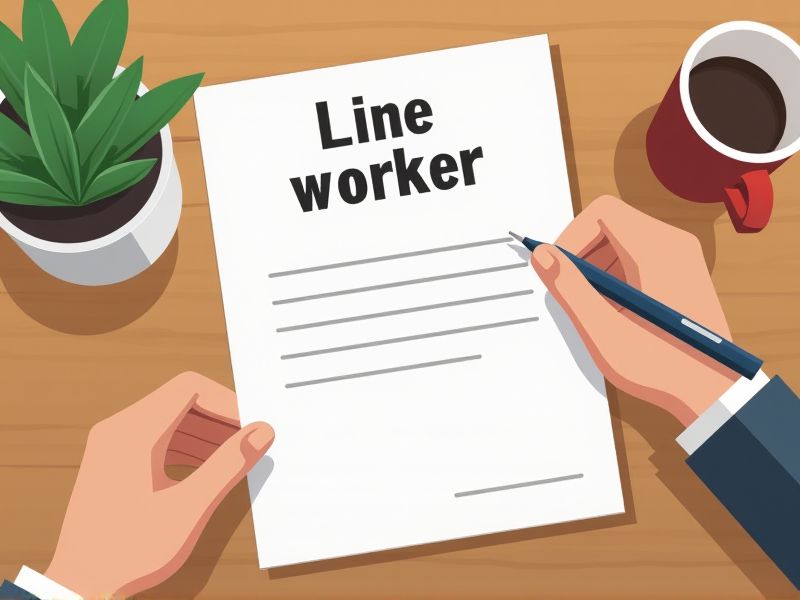
Line workers often operate in hazardous environments that demand precise knowledge and safety practices. Obtaining specific certifications ensures that they possess the necessary skills to handle high-voltage equipment and mitigate potential risks. These credentials also enhance job readiness and compliance with industry standards. Here are some important certifications you may need as a line worker.
OSHA 10-Hour Construction Safety Certification
OSHA 10-Hour Construction Safety Certification is crucial for line workers as it provides essential knowledge on workplace safety standards, reducing the risk of accidents. With this certification, workers gain awareness of potential hazards, contributing to a safer work environment. Employers often prefer certified workers, as it minimizes liability and enhances overall productivity. Many regions mandate such certifications as a legal requirement to ensure consistent safety practices.
OSHA 30-Hour Construction Safety Certification
Line workers often encounter hazardous environments, increasing the risk of accidents or injuries. The OSHA 30-Hour Construction Safety Certification provides comprehensive training on safety standards, ensuring workers recognize and mitigate risks effectively. This certification enhances a worker's ability to comply with federal safety regulations, reducing potential legal liabilities for employers. Employers prioritize certified workers, as they demonstrate a commitment to maintaining a safe workplace.
CPR and First Aid Certification
Line workers often face electrical hazards due to their close proximity to power lines, increasing the risk of accidents and injuries, so being CPR and First Aid certified equips them to respond promptly in emergencies. Accidents in such high-risk environments can lead to severe injuries, where immediate first aid can stabilize the condition before professional medical help arrives. Possessing CPR skills enhances the likelihood of survival for colleagues suffering from cardiac arrest, a possible repercussion of electrical shock. Employers often prioritize safety competence, so certified workers may find improved employability and career advancement opportunities.
Fall Protection Certification
Without Fall Protection Certification, line workers face increased risk of injury from falls due to working at significant heights. OSHA mandates fall protection training to ensure workers and employers comply with safety standards, minimizing the likelihood of accidents. Certified workers demonstrate knowledge in using safety equipment properly, reducing the potential for equipment misuse. Companies that invest in such certification often experience lower workplace accidents, which can decrease insurance premiums and improve overall productivity.
Lockout/Tagout Certification
Lockout/Tagout Certification is essential for line workers because it directly prevents accidental energization of equipment, which can lead to severe injuries or fatalities. The certification ensures that workers are knowledgeable about critical safety procedures, reducing the likelihood of operational hazards. Regulatory bodies require such certifications to enforce workplace safety standards and compliance. Employers also benefit from fewer workplace accidents, minimizing downtime and liability costs.
Electrical Safety Training (NFPA 70E)
Line workers frequently encounter high-voltage environments, increasing the risk of electrical hazards. Electrical Safety Training, such as the NFPA 70E, equips them with knowledge to prevent accidents. Compliance with NFPA 70E standards reduces workplace injuries and potential fatalities. Proper training ensures adherence to safety protocols, minimizing downtime and enhancing operational efficiency.
Confined Space Entry Certification
Confined Space Entry Certification is essential for line workers due to the inherent risks associated with limited environments, which include hazardous atmospheres and restricted access. Proper certification prepares workers to recognize and mitigate dangers specific to confined spaces, reducing the likelihood of accidents and injuries. Regulatory requirements, such as those from OSHA, mandate certification to ensure compliance and promote worker safety. Certified training facilitates the development of skills necessary for effective emergency response, enhancing overall safety and operational efficiency.
Line Clearance Certification
Line Clearance Certification is crucial for line workers to ensure high safety standards during operations, as it verifies that the work area is free of hazards. Without certification, the risk of accidents and equipment damage increases, potentially leading to injuries or operational downtime. The certification process establishes a standard protocol, promoting consistency and effectiveness in workflow management. Compliance with certification requirements helps regulatory and legal compliance, minimizing liability issues for companies.
Rigging and Signalperson Certification
Without proper Rigging and Signalperson Certification, line workers may face increased risk of accidents due to improper handling of heavy equipment. With appropriate certification, line workers gain essential knowledge in safely managing loads, thereby reducing the incidence of workplace injuries. Certification also enhances operational efficiency by ensuring clear communication and effective signaling between team members during complex lifting operations. Regulatory compliance requires certification to adhere to standardized safety protocols, preventing legal issues and potential fines for employers.
Defensive Driving Certification
Line workers often operate in environments with high traffic and moving equipment, increasing the risk of accidents. Defensive driving certification equips them with skills to anticipate potential hazards and react safely. Compliance with safety regulations and company policies often mandates such training to enhance workplace safety. Reducing accident rates can lead to lower insurance premiums and fewer injury-related costs for the organization.
Summary
When you acquire certifications as a line worker, you enhance your skills and knowledge, making yourself more competitive in the job market. This can lead to increased job security and potential for promotions, resulting in higher earnings and career growth. Your employer benefits from your improved expertise, likely leading to higher quality work and increased operational efficiency. Overall, both parties can expect a more productive and mutually beneficial work environment.
